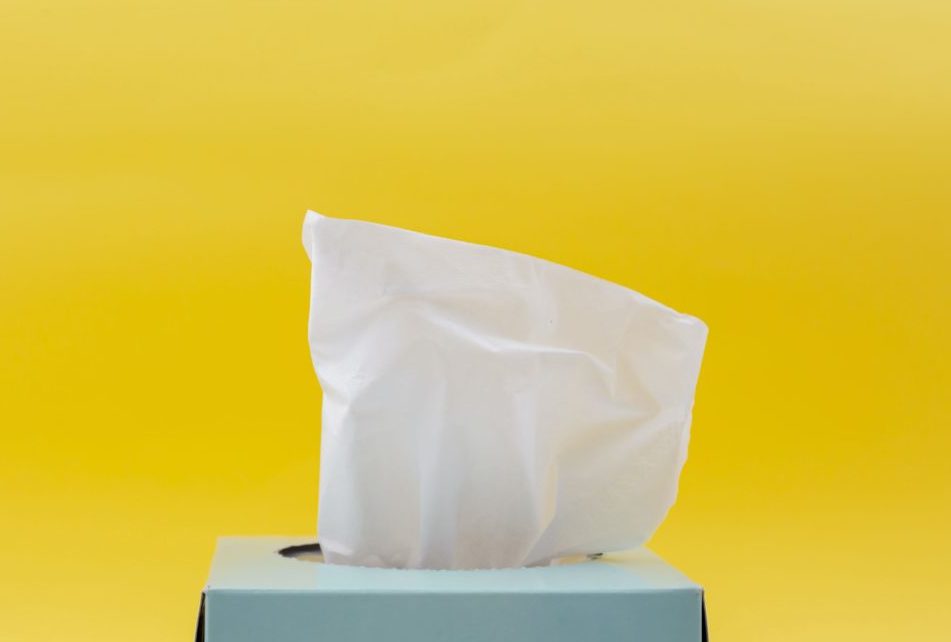We’re all too familiar with flu by now – fever, runny nose, sneezing, coughing, aches – and catching it can feel inevitable once the cold weather hits.
We caught up with the Occupational Health team at Teesside University to learn more about the tried and tested tips for avoiding it, protecting others and staying fit and healthy this flu season.
And, for those who do catch the highly contagious virus, there’s also a helpful guide to managing symptoms.
Guest blog: Occupational Health team
The Occupational Health team provides the University with a source of professional expertise to assist management with employee welfare and to assist staff with their own wellbeing needs. Its aim is to promote a positive wellbeing culture in the University.
Protecting yourself and others
Flu spreads easily from person to person, especially in the early stages of infection. The virus can travel through droplets from coughing, sneezing or even talking.
To help avoid flu, and stop it from spreading to others, you can take the following precautions.
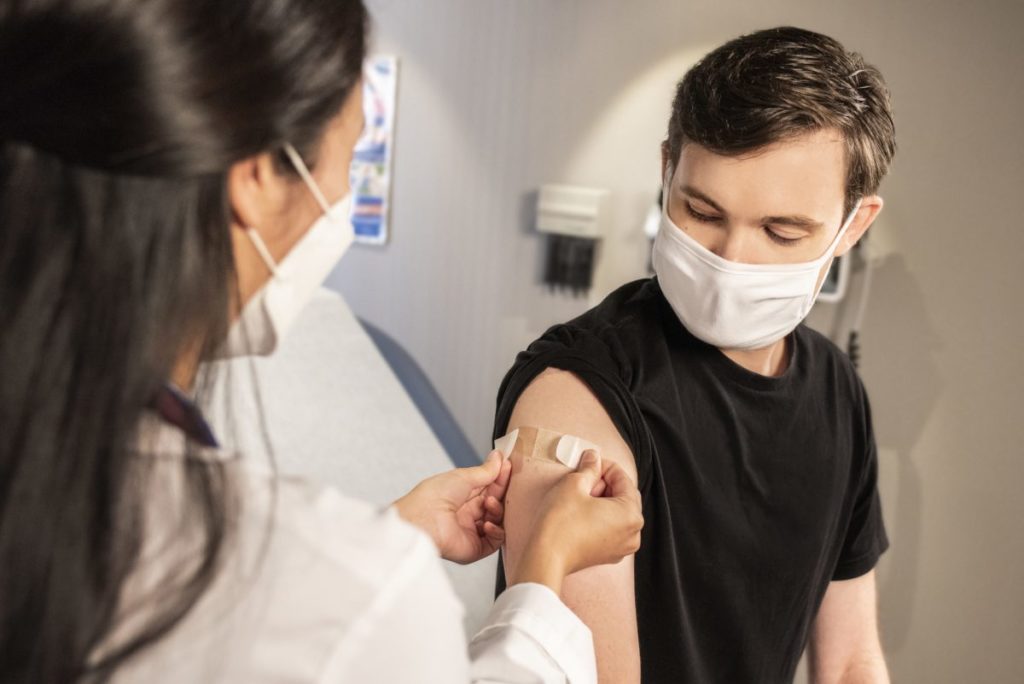
1. Get vaccinated
The best way to reduce the risk of flu and its potentially serious complications is to get vaccinated.
Everybody six months and older should aim to get the annual flu jab. Vaccination of people at higher risk of developing flu complications and those who care for them is especially important to decrease the risk of severe flu illness.
The good news? You could be eligible for a free flu jab from your GP or pharmacist if you are:
- aged 65 or over
- living in residential care or another long-stay care facility
- caring for an older or disabled person
- living with someone who is immunocompromised
- pregnant
- living with certain health conditions

2. Wash your hands
Think for a second about everything we touch with our hands on a daily basis – phones, door handles, lift buttons, toilet seats, light switches. Now think about how many other people touch these things.
It’s an easy way to spread germs, so maintaining proper hand hygiene is essential. Wash your hands regularly with soap and water for no less than 20 seconds. If soap and water are not accessible, use a hand sanitiser with at least 60% alcohol.
It’s an easy one, and it could protect you from nasty cold and flu viruses which will be circulating.
The flu virus can live on surfaces for several hours, so the same goes for cleaning and disinfecting frequently touched items in your home or work space.
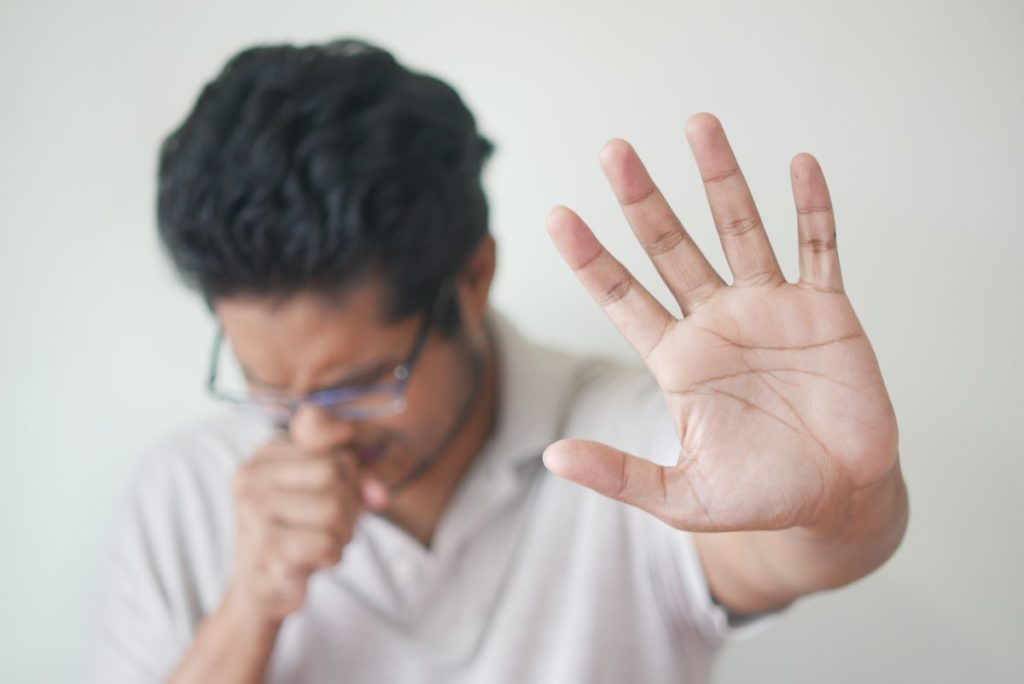
3. Keep your distance
It’s true that this would be a lot easier if there were giant signs floating above those who were sick to let us know to keep our distance. Unfortunately, that isn’t the case.
The best you can do is try to avoid close contact with those who are sick or exhibiting symptoms.
And the door swings both ways. If you do catch flu, protect others by keeping your distance from them – especially the elderly or those with underlying health conditions. The NHS advises staying at home for at least 48 hours after symptoms have passed.
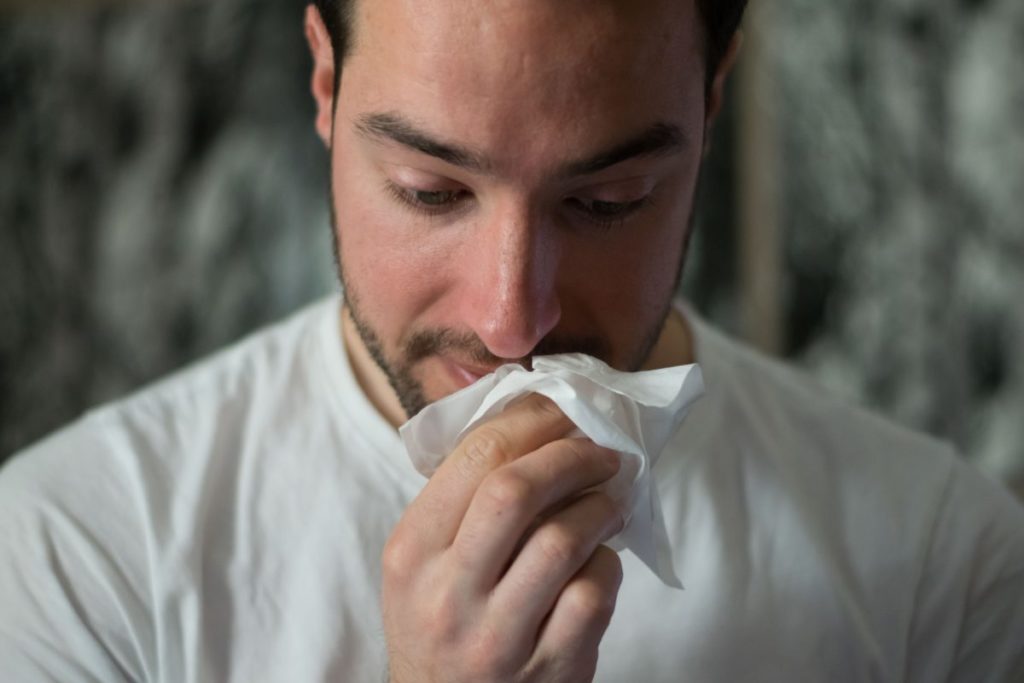
4. Cover your mouth and nose
When coughing or sneezing, always cover your mouth and nose with a tissue to catch the germs that are escaping, or encourage others to do so, and dispose of the tissue immediately in a lined bin.
If you’re caught off guard and don’t have a tissue, opt for the vampire method by coughing and sneezing into your elbow or arm. Why is it called that? It’s how a vampire would hide their fangs, of course.

5. Avoid touching your face
Touching a contaminated surface and then touching your eyes, nose or mouth can spread viruses.
That’s why it’s best to avoid touching your face altogether.
If you feel the need to rub your eyes or scratch your nose, make sure your hands are clean first.

6. Practice other healthy habits
Being aware of how germs and viruses can spread is key, but it’s also a good idea to maintain a healthy lifestyle.
That includes:
- getting plenty of sleep
- engaging in regular physical activity and exercise
- managing stress
- drinking plenty of fluids
- eating nutritious food which can boost your immune system
Following these tips will give you your best chance to enjoy the good things this season has to offer – like wrapping up warm and drinking hot chocolate – happy, healthy and free from flu.
Managing symptoms
If you do come down with flu, there are steps you can take to manage your symptoms and support your recovery.
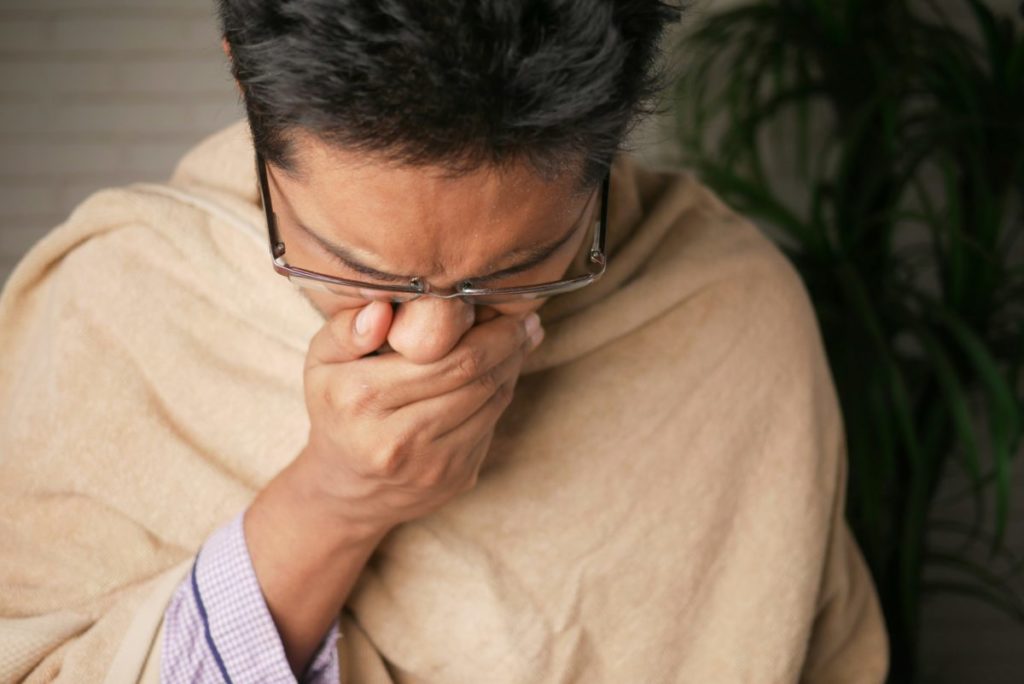
1. Recognise symptoms early
The first step in dealing with the flu is identifying the symptoms early. Common signs to look out for include:
- Fever
- Chills
- Headache
- Sore throat
- Body aches
- Fatigue
- Runny or stuffy nose
- Cough
Flu symptoms typically come on suddenly and are often more intense than a common cold. If you experience these symptoms, it’s best to rest and begin taking measures to manage them immediately.

2. Rest and hydrate
Once you’ve recognised you have the flu, rest is essential. Your body needs energy to fight off the infection, so take time off from work, studies and social activities.
The NHS recommends staying at home for at least 48 hours after your symptoms subside to avoid spreading the virus.
In addition to rest, staying hydrated is crucial. Flu can cause fever and dehydration, so drinking plenty of fluids like water, herbal teas, and broths can help replenish lost fluids and keep your throat moist.

3. Over-the-counter remedies
While there’s no cure for the flu, several over-the-counter remedies can help alleviate symptoms.
Pain relievers like paracetamol or ibuprofen can help reduce fever and ease body aches. Decongestants or throat lozenges may also help with other symptoms like a sore throat or blocked nose.
Remember to always follow the instructions on the packaging, and consult a pharmacist if you’re unsure what’s suitable for your symptoms.

4. Look after your mental health
Being laid up with the flu can take a toll on your mental wellbeing, especially if you’re unable to work or care for your family.
Feeling isolated, anxious or even frustrated during illness is natural, so it’s important to look after your mental health as well as your physical health.
You can do this the following ways:
- Stay connected with friends or family. If you’re isolating yourself, keep in touch via phone or video call to prevent loneliness.
- Practice relaxation. Follow a gentle meditation or listen to calming music to help you feel more at ease while you’re resting.
- Ask loved ones to help with chores or grocery shopping while you recover.

4. Seek medical help if needed
While most flu cases resolve on their own, it’s important to know when to seek medical attention.
If you experience any of the following, seek medical advice immediately:
- Difficulty breathing or shortness of breath
- Severe chest pain
- A persistent high fever that doesn’t come down
- Confusion or disorientation
- Worsening of existing medical conditions
For those in at-risk categories, such as pregnant women, the elderly or individuals with chronic conditions, it’s advisable to seek medical advice early to avoid complications.
The flu can certainly disrupt your life, but with the right approach, you can manage symptoms effectively and reduce the risk of spreading it to others.
Rest, hydration, proper hygiene, and being mindful of your surroundings are the cornerstones of a safe and speedy recovery. Always take steps to protect those around you and the most vulnerable.
Remember that vaccination is your best defence and can significantly reduce the risk of flu in the future.

